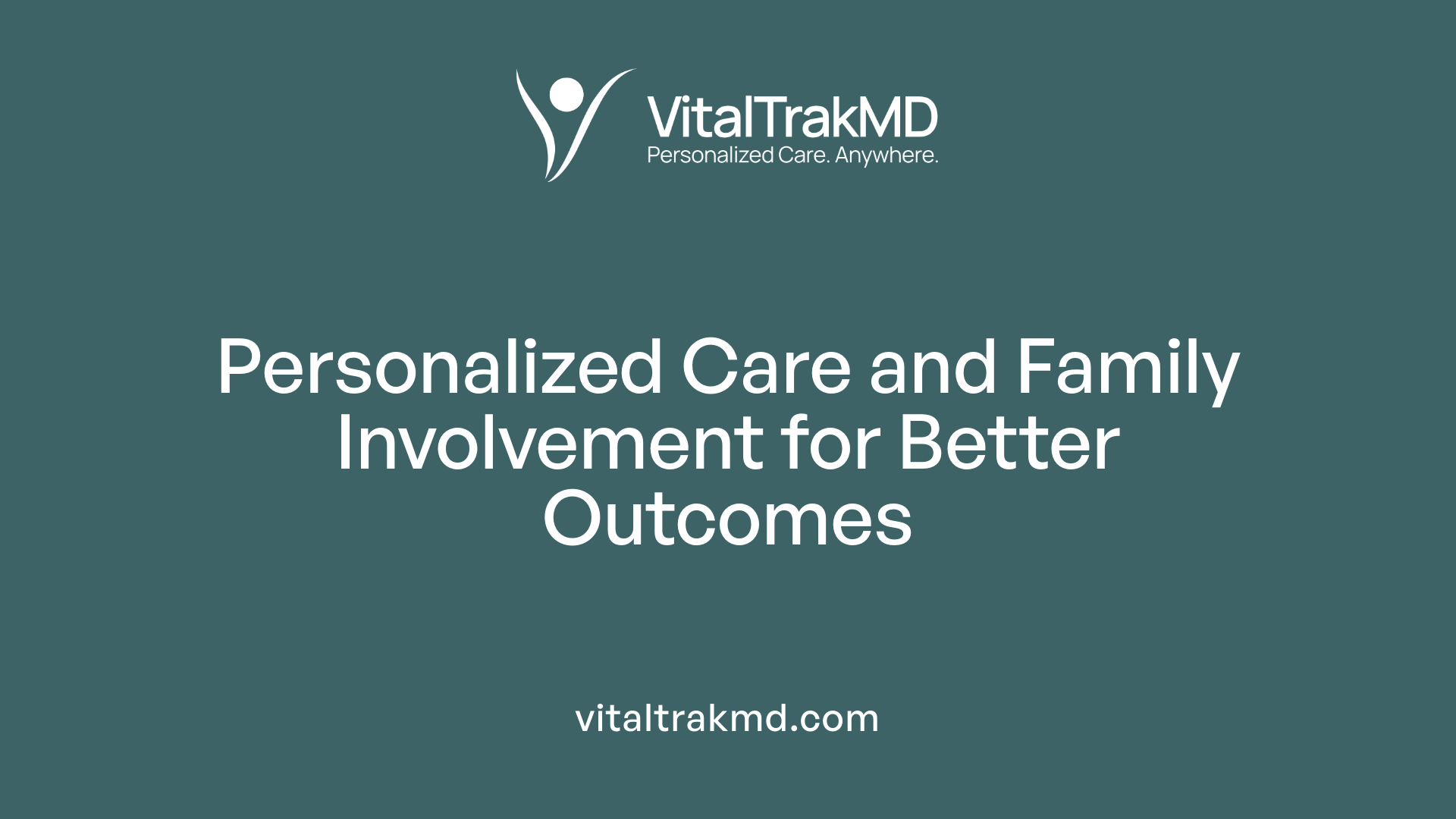Meet the Healthcare Professionals Behind Hybrid Senior Care Programs

Understanding the Backbone of Hybrid Senior Care
Hybrid senior care programs are transforming how healthcare services are delivered to older adults by seamlessly integrating in-person and virtual healthcare. Behind these innovative models are diverse healthcare professionals each with specialized roles, extensive training, and dedicated expertise. This article explores the competencies, responsibilities, and collaborative efforts of these professionals as they navigate and operate within modern hybrid care frameworks.
Physical and Primary Care Providers in Senior Programs
 In senior care programs, physicians and specialists fulfill crucial roles in diagnosing, managing, and treating various age-related health conditions. They often serve as the primary coordinators of a patient’s overall health plan, collaborating with other healthcare team members such as nurses, therapists, and social workers. Their expertise guides complex medical decisions, especially for conditions like hypertension, diabetes, or congestive heart failure, which require specialized management.
In senior care programs, physicians and specialists fulfill crucial roles in diagnosing, managing, and treating various age-related health conditions. They often serve as the primary coordinators of a patient’s overall health plan, collaborating with other healthcare team members such as nurses, therapists, and social workers. Their expertise guides complex medical decisions, especially for conditions like hypertension, diabetes, or congestive heart failure, which require specialized management.
Specialists such as cardiologists, geriatricians, and neurologists bring focused knowledge to address specific ailments common among older adults. These providers typically lead efforts in managing chronic diseases, designing tailored treatment strategies, and implementing medication plans. Their involvement ensures that seniors receive high-quality, comprehensive care that addresses both physical and mental health needs.
Healthcare professionals involved in senior care also facilitate the integration of innovative care models, including remote patient monitoring and virtual consultations, making healthcare more accessible and efficient for older populations.
Technological Innovations Supporting Senior Care Teams

How are technology-enabled solutions bridging the gap in senior care?
Technology-enabled solutions such as telehealth, remote monitoring, and artificial intelligence (AI) are revolutionizing senior healthcare by addressing several critical challenges. These tools enable continuous, real-time health tracking, allowing for early intervention before conditions worsen.
For instance, Amwell’s telehealth platform, operational since 2006, has expanded access to high-quality care for millions, including many seniors. Their system facilitates virtual visits, making healthcare more accessible for those with mobility issues or in remote areas.
Providence’s remote patient monitoring program exemplifies this approach. It focuses on patients with hypertension, diabetes, heart failure, and COPD, leading to significant reductions in emergency visits and hospital readmissions. The program uses connected devices to monitor vital signs at home, providing healthcare professionals with actionable data.
These digital solutions also support in-home care, a crucial factor given current workforce shortages and the need for personalized, accessible healthcare. They help providers deliver timely care and foster better communication between patients and healthcare teams.
What roles do healthcare professionals play in implementing technological solutions?
Healthcare providers are central to the success of digital health innovations. Their responsibilities include mastering new tools, engaging patients in virtual care, and making clinical decisions based on digital data.
They conduct remote assessments, manage electronic health records, and adjust care plans as needed, often in collaboration with other health professionals. Leaders such as Chief Nursing Officers or Clinical Operations Directors play a vital role in overseeing the integration process, establishing protocols, and training staff.
For example, clinicians using Amwell’s platform or Providence’s monitoring tools must interpret data accurately to identify issues early and intervene as necessary. Their expertise ensures that technological tools translate into meaningful health outcomes.
In summary, healthcare professionals are essential in adopting, managing, and optimizing digital solutions to enhance senior care. Their active participation ensures that technology complements clinical judgment, improves patient safety, and boosts overall quality of life for seniors.
| Technology-enabled Solutions | Role in Senior Care | Impact on Outcomes |
|---|---|---|
| Telehealth platforms (e.g., Amwell) | Virtual visits, remote assessments | Increased access, reduced travel barriers |
| Remote monitoring devices | Continuous vital sign tracking | Early detection of health issues |
| AI and predictive analytics | Data analysis for risk stratification | Personalized care, reduced hospitalizations |
| Digital care management platforms | Care coordination and documentation | Streamlined workflows |
Broader Context of Digital Integration in Senior Health
| Aspect | Description | Examples |
|---|---|---|
| Access Enhancement | Making healthcare more accessible regardless of location or mobility | Telehealth, home-based monitoring |
| Clinical Outcomes | Improving health metrics and reducing hospital stays | Providence’s hypertension and heart failure programs |
| Workforce Support | Reducing staffing burdens and supporting clinical decision-making | Digital care platforms, AI tools |
| Patient Engagement | Increasing adherence and satisfaction with care | Multichannel communication, remote check-ins |
Recognizing these advancements, healthcare organizations continue to invest in digital health, tailoring solutions to meet seniors’ unique needs while supporting the clinicians who serve them.
Collaborative Efforts and Multidisciplinary Teams in Hybrid Care

How do multidisciplinary teams operate within hybrid senior care models?
Multidisciplinary teams in hybrid senior care models work through a coordinated effort that integrates both in-person and virtual healthcare services. These teams typically comprise physicians, nurses, geriatric specialists, social workers, caregivers, and technology support staff. Together, they develop and manage comprehensive care plans tailored to each senior’s unique needs.
Communication is vital to this approach. Regular team meetings—either virtual or face-to-face—ensure alignment on patient goals and progress. Additionally, shared electronic health records (EHRs) enable all team members to access up-to-date information, making care more cohesive and timely.
This collaborative model allows clinical expertise to blend seamlessly with technological tools like remote monitoring and telehealth platforms. Such integration enhances the quality of care, improves patient outcomes, and supports holistic, patient-centered approaches. In senior care programs, this teamwork ensures that elderly individuals receive consistent, well-coordinated care, whether they are at home or in healthcare facilities.
What are effective communication strategies used in hybrid senior care programs?
Effective communication in hybrid senior care hinges on secure, interoperable digital platforms that facilitate real-time information sharing among team members, patients, and families. Regular virtual multidisciplinary case conferences allow providers to discuss patient status, review care plans, and make timely adjustments.
Establishing clear protocols for virtual consultations and documentation promotes consistency and transparency. Engaging seniors and their families in these discussions fosters trust, shared decision-making, and a better understanding of care processes.
Utilizing telehealth tools such as video calls and remote monitoring updates enhances interaction, especially for follow-up and ongoing assessments. These strategies support seamless coordination among diverse healthcare providers, ensuring that everyone is informed and aligned, thereby improving overall health outcomes for seniors.
What partnerships are essential for a successful hybrid care program?
Implementing an effective hybrid care program requires strategic partnerships across different domains. Collaborations between healthcare systems, like Amwell’s partnerships with over 100 health networks, create extensive telehealth infrastructure that broadens access.
Joining forces with technology companies ensures the deployment of secure, user-friendly platforms capable of supporting remote consultations and health data analytics. For example, technology support for electronic health records, remote monitoring devices, and virtual care portals is crucial.
Furthermore, partnerships with payers, community organizations, and social services help extend the reach of care services, especially for vulnerable seniors.
These collaborations foster innovation, improve resource utilization, and continuously enhance the quality of senior care by creating a comprehensive healthcare ecosystem tailored to the unique needs of elderly populations.
| Aspect | Details | Examples |
|---|---|---|
| Team Composition | Multidisciplinary teams include clinical and support staff. | Physicians, nurses, social workers, tech support |
| Communication Methods | Utilizing digital platforms and regular meetings. | Video calls, shared EHRs, case conferences |
| Partnership Types | Collaborations between providers, tech firms, and payers. | Amwell with health systems, tech vendors |
| Goals | Enhance coordination, efficiency, and patient outcomes. | Reduced hospital readmissions, seamless care transitions |
| Resulting Benefits | Improved care continuity, patient satisfaction, operational performance. | Better health outcomes, cost savings, higher engagement |
This integrated approach ensures that senior care remains accessible, personalized, and effective—leveraging the expertise of healthcare professionals alongside innovative technological solutions.
Patient-Centered Approach and Family Engagement in Hybrid Care

How do healthcare professionals personalize senior care plans?
Healthcare providers tailor senior care plans by deeply assessing each individual’s health status, personal preferences, and daily circumstances. This process involves reviewing medical histories, current health conditions, mobility levels, cognitive function, and personal goals. Using this comprehensive information, clinicians develop customized interventions that address specific needs.
Ongoing monitoring and feedback from seniors and their family members are essential for refining care strategies. Adjustments are made to ensure that the care remains relevant as health conditions evolve, thereby boosting engagement and adherence. This personalized approach not only enhances patient satisfaction but also leads to better health outcomes, especially in hybrid care environments where remote and in-person services are integrated.
Empowering Superior Senior Care Through Collaboration
Behind every successful hybrid senior care program is a dedicated team of healthcare professionals whose expertise, innovation, and compassionate approach shape better health outcomes for older adults. They operate across physical and digital realms, employing advanced technologies and personalized strategies. Collaborations with health systems, technological partners, and families forge a comprehensive, patient-centered ecosystem that addresses the unique needs of seniors. As hybrid care continues to evolve, the commitment and adaptability of these professionals will remain central to delivering high-quality, accessible, and compassionate care for an aging population.
References
- Amwell: Your Partner in Care Delivery
- How 3 Health Systems Are Scaling Hybrid & Home-Based Models
- Meeting the Challenges of an Aging America Through Healthcare ...
- Bethesda's Support Solutions | Senior Care Services in St. Louis, MO
- What Does a Geriatric Care Manager Do? | Role & Responsibilities
- Caregiver Activities, Duties and Responsibilities - CaringInfo
- Home Health and Personal Care Aides
Recent articles
Want to Feel Better and Live Healthier?
Join hundreds of patients taking control of their health with personalized care that fits their life – not the other way around.
Rated 4.8/5 by 32+ customers







